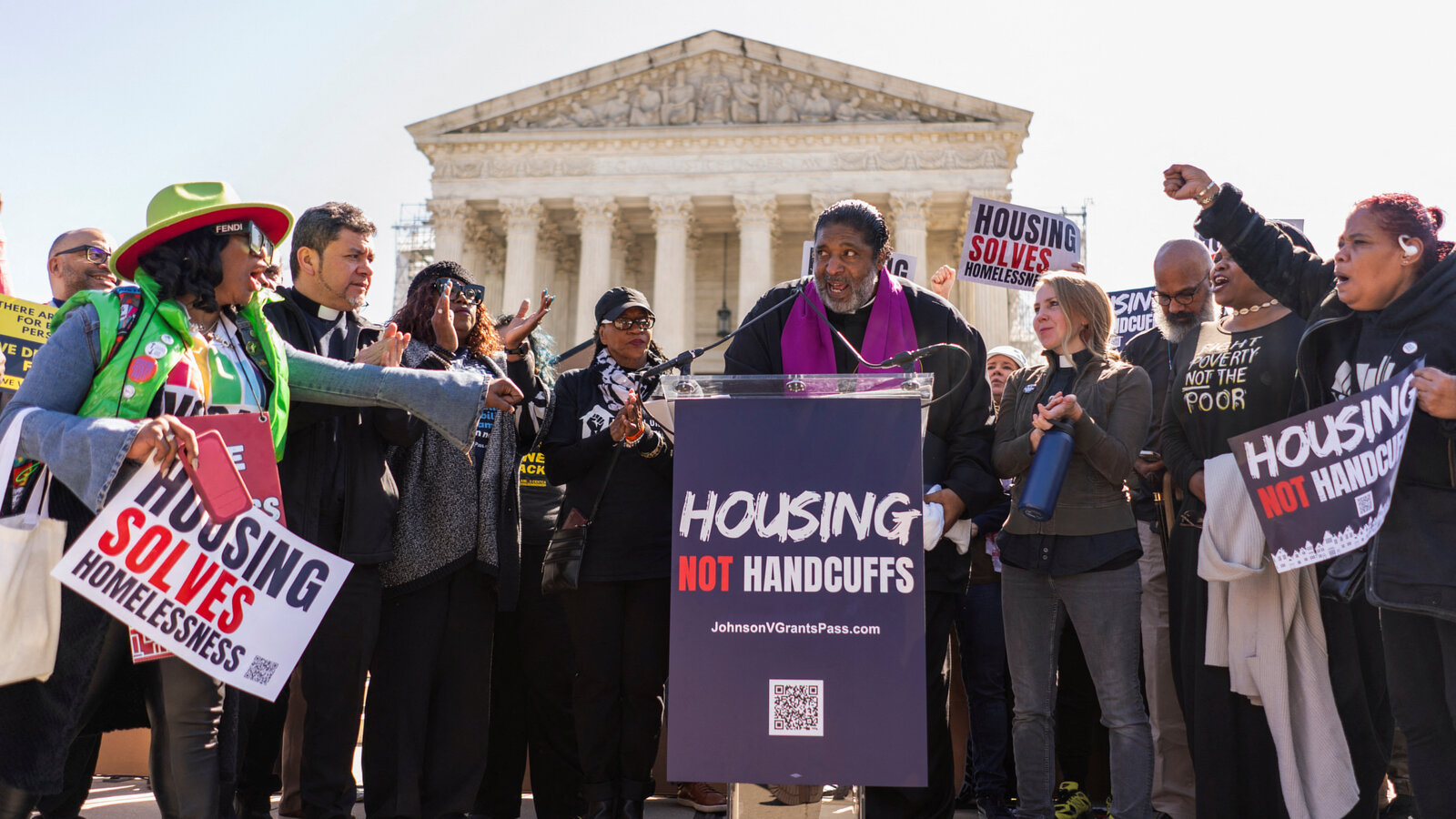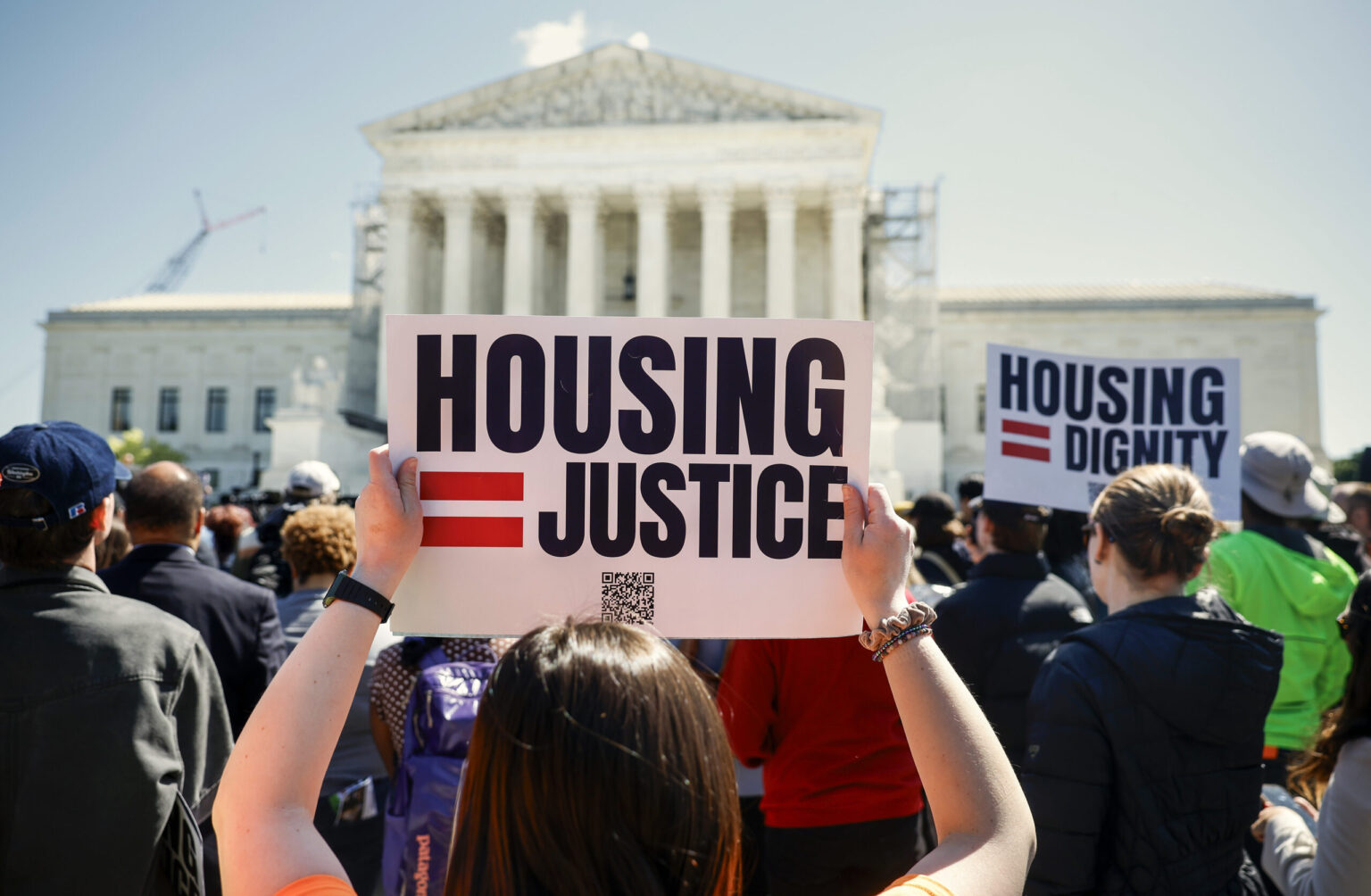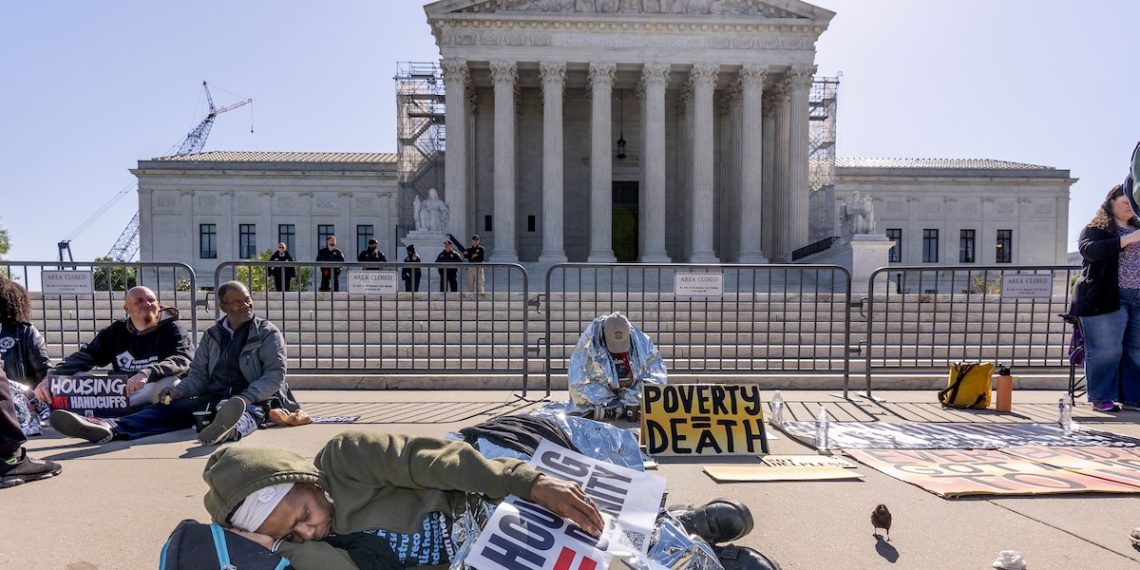The U.S. Supreme Court addressed the complex issue of homelessness on Monday, addressing the legality of local ordinances targeting individuals camping on public streets and parks.
Justices heard arguments in an appeal by Grants Pass, Oregon, challenging a lower court ruling that deemed enforcing anti-camping laws against homeless individuals when shelter space is unavailable as unconstitutional under the Eighth Amendment.
Conservative and liberal justices appeared divided, with conservatives questioning the distinction between status and conduct regarding homelessness.

Chief Justice John Roberts expressed skepticism about homelessness being considered a status deserving protection from local laws.
In contrast, liberal justices like Sonia Sotomayor and Elena Kagan criticized ordinances criminalizing homelessness, emphasizing the need for compassion and basic human rights.
The case underscores the broader challenge of homelessness nationwide, with over 600,000 people homeless on any given night in the United States.
Grants Pass’s ordinances, aimed at prohibiting sleeping in public spaces with blankets or bedding, raise questions about public safety versus individual rights.
Advocates argue that such laws criminalize homelessness and push vulnerable populations into legal trouble without addressing underlying issues like affordable housing shortages.

On the other hand, proponents, including some government officials, assert that these ordinances are necessary for maintaining public safety.
The Supreme Court’s decision, expected by June, could have significant implications for homeless individuals across the country.
The case highlights the need for a nuanced approach to addressing homelessness, balancing public safety concerns with the protection of fundamental rights and human dignity.




